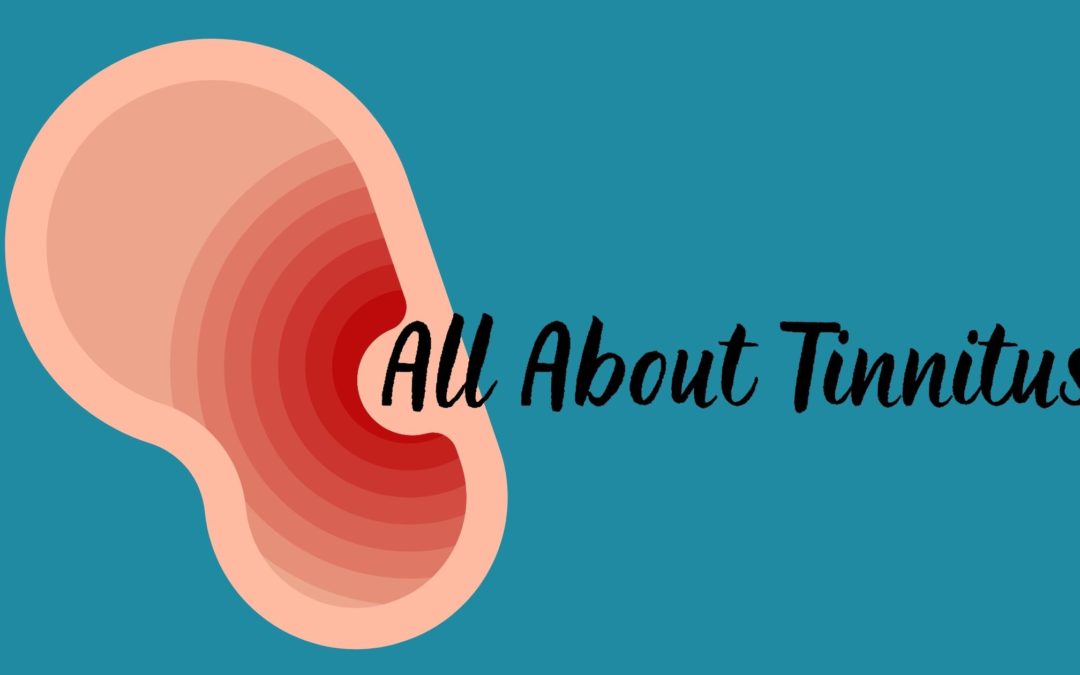Tinnitus is an unpleasant symptom, most commonly described as a buzzing, ringing, clicking-like noise in one or both ears. The sound is heard when there is no external noise present and is often an underlying symptom of a medical condition. According to the Hearing Health Foundation, 25 million adults report experiencing tinnitus for five (or more) minutes in the past year. Additionally, 16 million people seek medical attention for tinnitus annually.
Tinnitus can be experienced mildly to profoundly, significantly impacting daily life. It can take a toll on sleep, make concentration difficult, impact job performance, and contribute to fatigue. If you experience any degree of tinnitus, it is important to be assessed by your doctor so any underlying conditions that could be present are identified and treated. In addition to this, there are useful ways you can manage tinnitus to alleviate its impact.
Common Causes of Tinnitus
Tinnitus is not a condition in itself but rather, a symptom of an underlying health issue. There are numerous causes that could trigger tinnitus including the following:
- Hearing Loss: the most common cause of tinnitus is hearing loss – the third most common chronic medical condition that older adults experience. Hearing loss impacts nearly 48 million people and is expected to increase. Impaired hearing typically results from damage to the hair cells in the inner ear which are responsible for converting soundwaves into electrical signals that are sent to the brain to be further processed (enabling us to understand what we hear). This damage can be caused by existing medical conditions, loud noise, aging, head/neck injuries, and genetic history. The Hearing Health Foundation estimates that 90% of tinnitus cases occur with an underlying hearing loss.
- Exposure to Loud Noise: one time or consistent exposure to loud noise can be hazardous to the sense of hearing and can trigger tinnitus. Most people have experienced temporary tinnitus after leaving a loud venue (a concert for example) and you sense your ears are ringing and you cannot hear as clearly.
- Earwax: earwax can accumulate in the ear canal which means a buildup of bacteria. This can cause infection, irritation, block soundwaves from reaching the inner ear, etc., which can lead to tinnitus.
Tinnitus can also be a symptom of experiencing muscle spasms in the ear, blood vessel conditions, and bone growths in the ear. Tinnitus, depending on the cause, can be temporary or chronic and can be debilitating if experienced severely.
Useful Tips to Manage Tinnitus
There are various strategies you can use to manage tinnitus and alleviate its impact on daily life. A few useful tips include:
- Destressing: identifying stressors and finding healthy ways to process that stress can alleviate tinnitus. Stress is a major trigger for tinnitus so intervening by reducing stressors or engaging in calming activities: meditation, yoga, exercise, taking walks, etc. can really provide some relief.
- Using ambient noise: ambient noise, or white noise, can help mask tinnitus. Tinnitus tends to be amplified in quieter settings which can shift your attention to it. Ambient noise is a useful way to deal with this. You can create this kind of noise by playing soft sounds in the background which helps prevent you from focusing on the tinnitus.
- Exercise: physical activity can also reduce tinnitus by providing more energy, improving sleep, decreasing stress, and enhancing mood.
- Enhance Sleep: tinnitus often takes a toll on sleep. Tinnitus can prevent the 7-9 hours of sleep per night that adults need. Lack of sleep can then worsen tinnitus which in turn disrupts sleep. You can break this cycle by: creating a sleep routine, avoiding screens at least a half-hour prior to sleeping, using comfortable lighting, ensuring your bedding is comfortable, etc.
- Reduce intake: of substances like caffeine, alcohol, and nicotine which can activate tinnitus.
- Protective wear: wearing earbuds, headphones, earmuffs, etc. offer a protective barrier from loud noise. This reduces the amount and impact of loud noise which can reduce the experience of tinnitus.
In addition to practicing these tips, another critical way to treat tinnitus is to have your hearing checked. Hearing tests involve a noninvasive process that identifies any presence of hearing loss which could be the cause of tinnitus.


